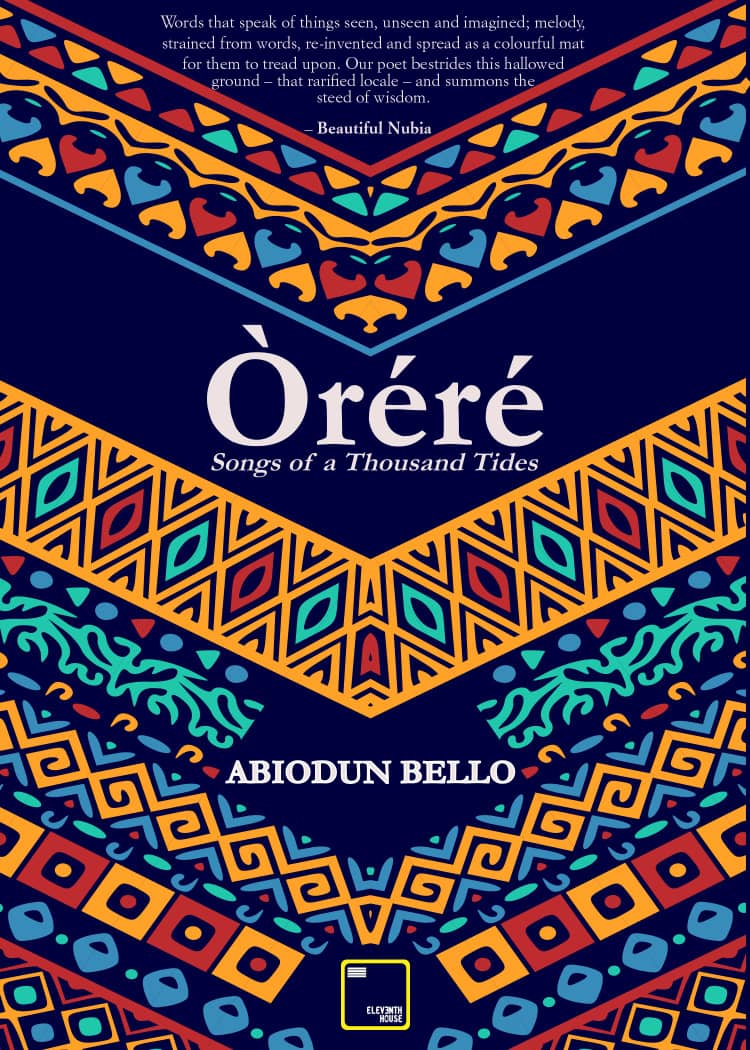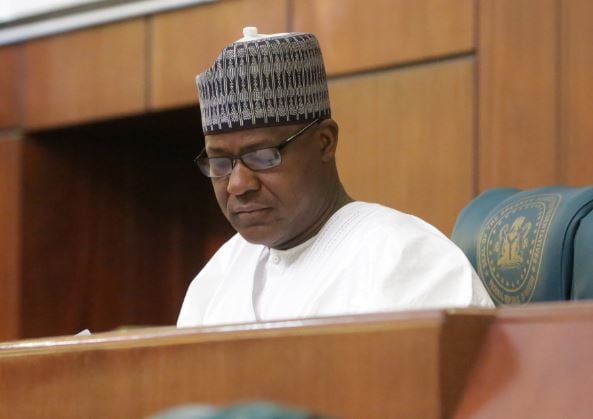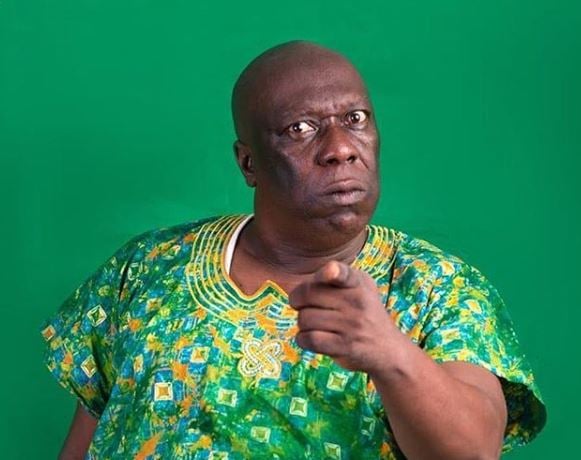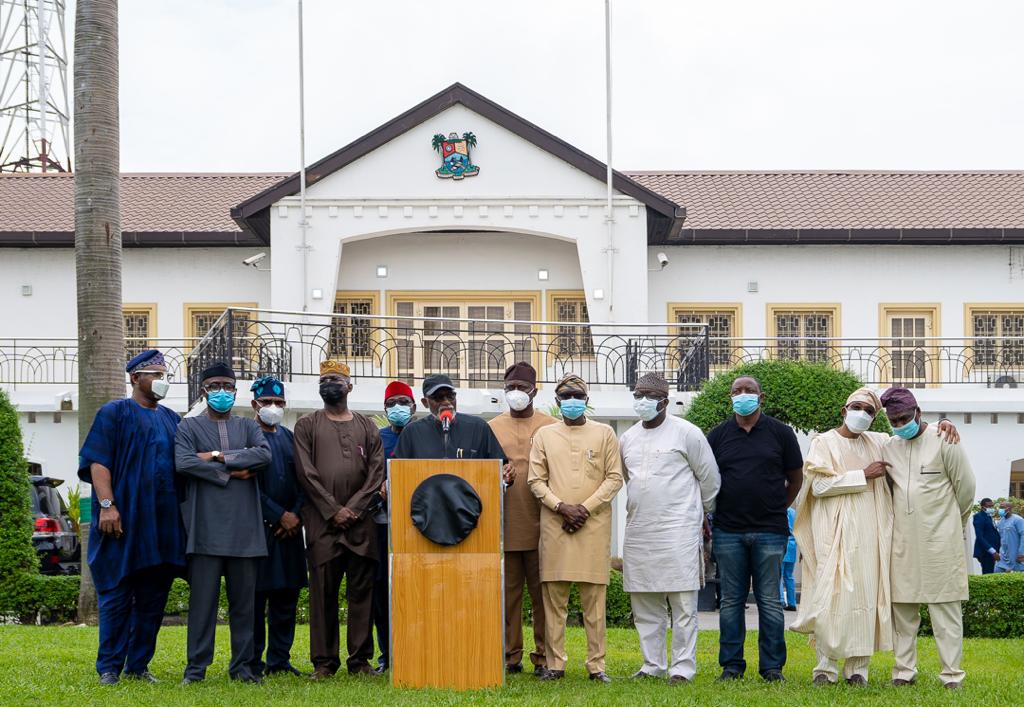BY TOYIN FALOLA
I am just a reader! But readers do have their own minds. We agree and disagree with authors, writers, singers. We are as important as them. Why? The significance of the readers’ response is that texts affect us in unique and subjective ways. Another is that readers determine the meaning of texts as these can be inferred only through close reading. Another tenet is that anything that affects or adds to a reader’s development affects their interpretation of a literary text. One of the principles also states that an individual’s social standing, race, gender, nationality, age, physique, occupation, and interests significantly impact how such an individual interprets a text.
However, texts are subjected to how readers perceive them do not connote that just any meaning given to a text would suffice. Preferably, the interpretation of a text should be backed up by “sound references and inferences.” Ultimately, this will be the aim of this review as Abiodun Bello weaves and incorporates the complexity and pleasures of poetry coupled with the exploration of the various techniques and genres open to poets who have enabled him to produce a compelling anthology of poems which has made the reader listen to a poetic voice and pushed literary critics to think.
It is pertinent to note that Abiodun Bello’s collection, Orere, critically supports the claim that readers bring their personal experiences and cultural belief or notions to the reading of the text, which includes gender, race, political affiliations, and religious beliefs, and so on and the overall meaning in the poems employs the connection and interconnectedness of the content, form, tone, voice, mood, rhyme, rhythm and imagery together. Another unique element is the musicality and language resources in the collection blended with a linguistic element such as logographic, morphological, and semantic. The effects of these are that it brings out the poetic voice or tone as sharply different and distinct and one which is a unique combination of all voices from different eras and regions of poetry and poets, respectively. In other words, Bello incorporates the features of the Romantic, Modern, Postmodern, and elements of the Contemporary Age in his collection. Also, there is a melting pot of all classes of society, composed of poets with similar social, cultural beliefs in his poems, mostly the African socio-cultural identifiers are rampant in them.
Advertisement
In a season and time like contemporary Nigeria, the rate at which writers wield their pens against the government is effectively pronounced in their works. In war-ravaged states like the northern parts of the country, the presence of grim experiences and sad tales reminds the masses about the insecurity they wake up to see daily. Thus, the angry and booming voices of the generation of poets that witnessed the literary evolution of Niyi Osundare, Odia Ofeimun, Olu Oguibe, Afam Akeh, Remi Raji, etc. reflect in the works of the emerging Nigerian writers. However, there is a section of new and refreshing poets in the age of social media has proved to us the passage of poetic inheritance laden with anger and political consciousness imbued in the voices of their masters is essential, but the elevation of the folklore and socio-cultural identifiers and the beautiful aesthetics and peculiarities of the culture of their region is pertinent as well. This is what Abiodun Bello has done as he has critically examined and written with resourceful language, particularly about the Yoruba folklore’s style.
The African literary space has been a site of and for orality. The beginning of all literature is oral. Before the advent of writing, the oral medium served the people as a bank to preserve their ancient experiences and beliefs. In other words, orality, the oldest means of communication, has been the vehicle on which literary expressions ab-initio rode in Africa. Poetic expressions have roots in orality. In other words, orality has a lingering influence on African literature in general and African poetry. The primary phenomenon is orality while the subsequent secondary is written. Orality is usually defined as the thoughts and verbal expressions in those societies where writing skills have not been developed. Orality should not be ignorantly perceived as an oral tradition. Oral tradition explains a long-established action or pattern of behaviour in a community or group of people, often one that has been handed down from generation to generation. Oral tradition can be a body of customs, behaviour, practices, and beliefs lived and valued by a culture. Africans have a rich oral tradition. Oral renditions existed and still exist as one of how African value systems are transmitted into the upcoming members of a community. African belief systems, attitudes, modes of worship, traditional mores, communal expectations, and cultural affinity are transmitted through traditional oral methods like storytelling and other forms of ritual recourse.
For centuries, Africa’s oral traditions in Amharic, Bambara, Hausa, Lingala, Popular, Swahili, Twi, Wolof, Xhosa, Yoruba, Zulu, and hundreds of other indigenous languages, have thrived in the form of proverbs, tales, epics, riddles, and poetry. We see many African proverbs, festivals, witty sayings, folklores, and pithy sayings reflected in the African centred poems of Abiodun Bello in the Orere collection. There are incidences of orature in his poems, and they have imbibed the traditional oral art in creating authentic African poetry from the African sociological framework.
Advertisement
One of this collection’s many strengths is how the poems use structure in the most apparent detail to authenticate the wholesome shifts in themes and subject matter, which is what makes the collection fascinating and unique as the subtitles from ‘Transition and Departure’ to ‘Friendship’ to ‘Innocence’ to ‘Communal’ to ‘Mortality’ to ‘Imitation’ to ‘City Metropolis” to ‘Supplication’ to ‘Nature’ and to ‘Transience’ shows a work of art that intentionally focuses on particular subject matters that captures the social workings of humanity and what sustains it.
In Orere, the overwhelming presence of natural elements and social workings of societal positions engineered by the men and women is noticeable in the verses. Semantically, the title of the collection offers both the voice, reflective elements with the use of the Yoruba word, ‘orere,’ accompanied by the English phrase, ‘songs of a thousand tides’ which reflects the many topics and subtitles aforementioned in different waves and ebbing movement through a language that is capturing and fascinating. As one would expect, this has set the tone for the readers as the title of the collection would be a welcoming one and suggests departure, which is one of Yoruba cosmology’s tenets. It is not surprising that Bello starts with “Transitions and Departures” and ends with “Memorials and Imitations,” which shows a sort of initiation into the poetic world and ranting about several issues and rounding off with paying homage to those he learnt poetry from as it is displayed in one of the poems titled ‘Ibadan’ which ends the collection as the poem notes that Ibadan is “Cradle stone of clans and tribes that is sitting amidst vales and seven mountain like a god” (143).
In the first part of Bello’s Orere, titled “Transitions and Departures,” the author shows how weird it is to be home or a comfortable place for too long, as everything and nothing are the same. The poet recounts that displacement from one’s comfort zone has made the landscapes once so familiar to me become suddenly shuffle, and some departures are more challenging than others. This is aptly presented in the poem “Nuptials,” which is where a woman is teary and offering the daughter out in marriage, which can be linked to how the poet himself is being given out in the journey of the poetic world. This is shown:
Today, daughter,
Advertisement
Like a twig, away from me.
Your bridal footsteps find new paths
Like tendrils, onto his threshold. (16)
Carrying a surreal tone, the collection moves on to the poems, which are personal as the poet discusses the nexus between ‘Dreams and Hallucinations’ which is the title of the second part of the collection. Here the poems show the poetic voice as a direct participant rather than a spectator, and internal and personal events almost entirely dominate experiences that shape the poet persona. In this part, the poems are a sort of perception that appears as if they occur in the external world, and Bello is recounting it in a separate world. As a result, a subversion of incidents defined by dreamy language coexists with the poet’s ongoing flow of thoughts. In the poems “After this war” and “Leaf of a Dream,” there seems to be a state of dreamy desire that the poet wishes for himself and the society, but they cannot happen at that instance. These are well captured with contradictory words, where the poet wants a dreamy happening, and it is mixed with the sad reality. In the poem “And after this war,” he recounts the casualties of war and wishes for a good life but ends with a pessimistic tone:
Advertisement
And, now, after this bloody war…
lowly childhood these dragging days and brooding twilights,
Advertisement
the silent schools and the idle marketplace,
even as the setting suns slowly go down… (32)
Advertisement
The third and fourth parts, titled “Populi” and “Friendship,” delve into the sociological aspect of a life that will espouse the spirit of connectedness and communal nature. On the surface level, the poems in this part appear to be a detailed observation of the poet’s immediate and other environments.
However, the poems are riddled with deep layers of metaphors and references to historically significant events and places with deeper interrelatedness and connotations in the present-day world. For instance, the poem which stands out is “Xenophobia,” which details the inhuman and hating one another by Africans to Africans in South Africa to some Nigerians residing there. In this poem, Abiodun adeptly but subtly reinforces that institutionalized spaces only restrict the world because history and facts have consistently depicted sameness of experience.
Advertisement
I am a brother
Tilling the land
In another brother’s soil
I am a child of the sun
Watching the rainbow rise (41)
With these lines, the poet persona introduces with a subtle tone that shows that the poet persona begs to live peacefully in a land that is supposed to be endearing and welcoming, but this is not so as the sun rainbow he expects are not forthcoming. However, Bello stresses the evil in casting individuals by ignoring and inflicting an unwelcome mood based on their nationality or race, a transgression that some Africans are also guilty of.
Also, Bello uses his collection to perform useful functions which is peculiar to African literature. Africans endeavour to reflect the realities of their societies in their literary works. It is important to note that African writers, over the years, tailor their art to adequately respond to the prevailing situations in their environment at that particular time. This trend is also visible in new directions in Nigerian poetry. The modern African poet reflects the harsh realities in his society in his poems. Poetic voice, language, and other poetic devices are used to remember poets’ social commitment, which Bello has fulfilled in part titled “City.” Through some of the poems, he covertly commented on the social vices plaguing the African socio-political landscape. For instance, the poems ‘sexhibition’ and ‘gloomy’ reflects a certain level of social commitment, which is reflected through satire, in which Bello exposes the social ills and vices bedeviling the Nigerian society by exposing them to ridicule and inviting his readers not only to see but understand the situation and where it is coming from as these are the negligence of the leaders in the country.
Similarly, Bello subtly uses that part of the collection to ridicule and hint at the dangers of the urban society as it has a way of corrupting the youths in the locale instead of the civility and tranquility of the rural area. It is pertinent to state, thus, that the poet is referring to the Modern and Romantic poets who uphold the serenity of the rural setting over the city life just as poets such as William Wordsworth, Thomas Hardy, S.T. Coleridge have written in the past. This poet must have learnt about them during his days in Ibadan, which he acknowledged in the foreword of the collection and dedicated a poem to it.
Likewise, it is not surprising that the poet followed in the Romantic poets’ footsteps as he creates parts such as ‘Mortality’, ‘Nature’, ‘Innocence’ and ‘Transience’ in his collection. The different poems under these parts dwell on tenderness, child innocence, the complexity of death, the description, observation, and questioning the significance of nature and, more importantly, the transience and brevity of life. However, it is noteworthy to state that Bello, in his collection, did not just follow the romantics’ tenets blindly. Still, he imbued and flavored the poems with African elements, flora, and fauna in these poems so that it would be relatable to the readers and, at the same time, a sort of export of culture and folkloric elements in the African system. For instance, in the poem ‘Kokumo,’ the poet explains the Yoruba cosmology, which is the three worlds: living, dead, and unborn and also the poem ‘Going. Going, Gone’ to explain the intricacies of mortality. Also, flora and fauna of the African life is a socio-cultural identifier which the poet used in embellishing his poems as he substitutes what Wordsworth, Hardy, and Coleridge would have used in describing nature with ‘Osupa’ to discuss the efficacy of the natural elements to teach readers the transience of life.
Finally, the collection has made an effort to show communitarianism simplication for the pursuit of a good human community. It is noted in the poems that communitarianism promotes an excellent social community. This conclusion is arrived at through the analysis of the poems under the part titled ‘Communal and Survival’ where the poet tells the story of the slaves communally even with a sad tone that shows suffering, pain, and oppression in the poem ‘Kira Kira’ and ‘labour’ as Bello well espouses them in the collection. It is ingrained in the poems that a community means a communion in unity: unity of all the various and differing elements of society. Every society has its share of these elements of culture. An excellent human community, therefore, bespeaks of a socio-political arrangement that galvanizes these various elements of the culture into a mutual and cooperative whole.
Overall, Bello’s collection is timely. It is severe and fascinating in its relentless criticism of the society and what makes up the human nature coupled with the Yoruba folkloric elements. He never forgets to address the societal problems that impede his country’s progress at all levels, which proves him to be a committed poet. The poet’s use of poetic diction should be applauded, and for this and all other reasons, this is a work of poetry worthy of the reader’s time.
Toyin Falola is distinguished teaching professor and humanities chair at The University of Texas, Austin
Add a comment






